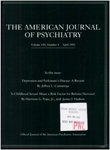Second-generation deinstitutionalization, I: The impact of Brewster v. Dukakis on state hospital case mix
Abstract
A 1978 consent decree affecting one region of Massachusetts mandated a drastic reduction of census at its state hospital, where considerable deinstitutionalization had already occurred over the prior two decades. The transfer of patients from hospital to community was to be accomplished through the unprecedented expansion of community resources. This second-generation deinstitutionalization effort achieved substantial census reduction but less than was envisioned. It was most effective in discharging geriatric and mentally retarded patients but far less effective with longterm and new chronic patients, many of whom continue to require repeated hospitalizations despite the availability of a comprehensive array of community-based services.
Access content
To read the fulltext, please use one of the options below to sign in or purchase access.- Personal login
- Institutional Login
- Sign in via OpenAthens
- Register for access
-
Please login/register if you wish to pair your device and check access availability.
Not a subscriber?
PsychiatryOnline subscription options offer access to the DSM-5 library, books, journals, CME, and patient resources. This all-in-one virtual library provides psychiatrists and mental health professionals with key resources for diagnosis, treatment, research, and professional development.
Need more help? PsychiatryOnline Customer Service may be reached by emailing [email protected] or by calling 800-368-5777 (in the U.S.) or 703-907-7322 (outside the U.S.).



